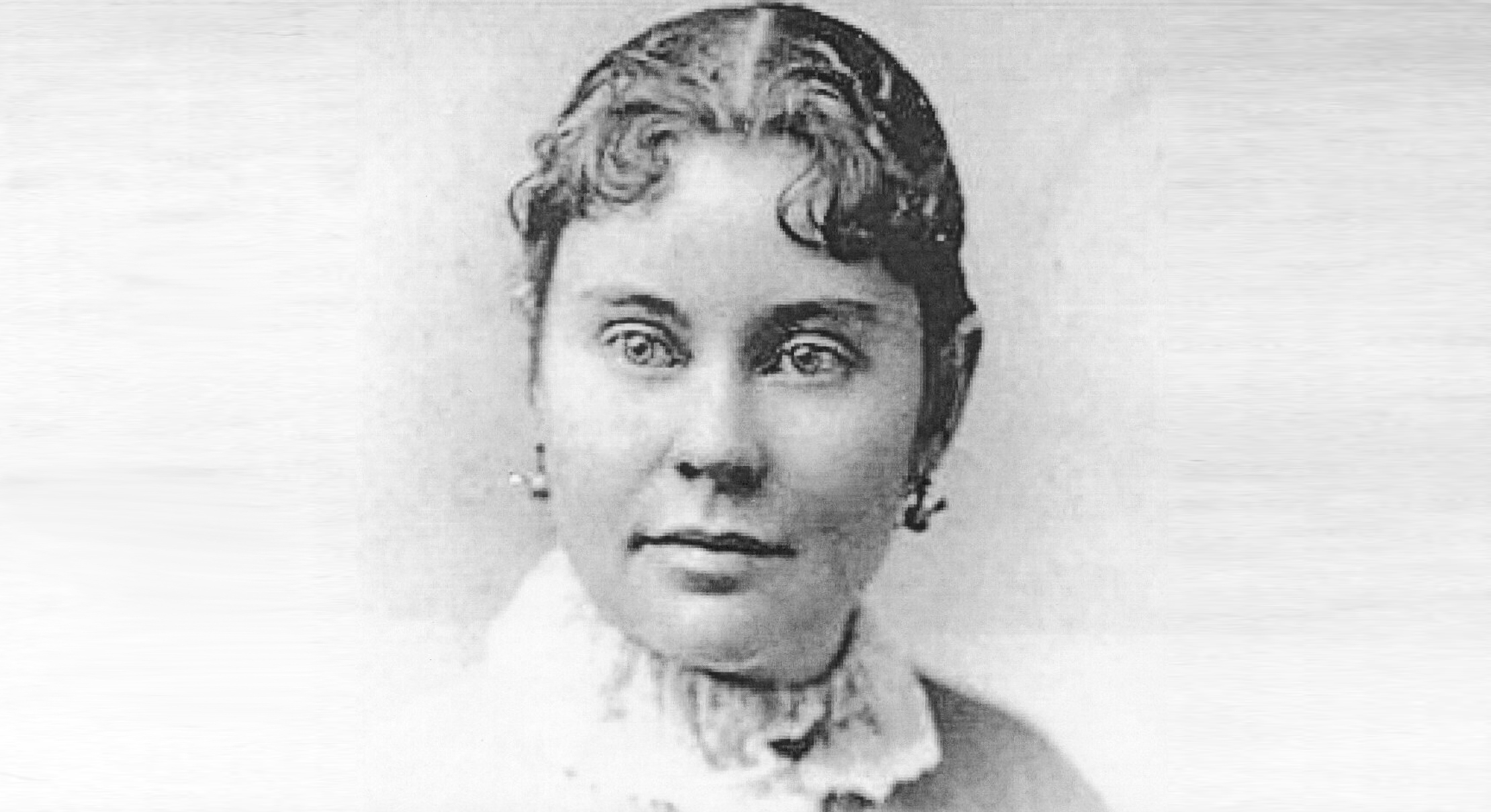
The Curious Case of Lizzie Borden

On July 19, 1860, to June 1, 1927, an American woman faced trial and was subsequently acquitted for the ax murders of her father and stepmother in Fall River, Massachusetts, which occurred on August 4, 1892. No other individuals were ever implicated in these homicides, and despite being shunned by the local community, Borden continued to reside in Fall River for the remainder of her life. She passed away from pneumonia at the age of 66. Her father, Andrew Jackson Borden (1822-1892), achieved success in the manufacturing and sale of furniture and coffins before becoming a prominent real estate developer. He served as a director for several textile mills and owned a significant amount of commercial property. Additionally, he held the position of president at the Union Saving Bank and was a director at the Durfee Safe Deposit and Trust Company. At the time of his death, his estate was valued at $300,000, equivalent to approximately $10,000,000 in 2024.

The Borden family had been fostering a highly charged environment for several months leading up to the murder, particularly concerning Andrew’s real estate donations to various members of Abby’s family. On the evening of August 3, Morse arrived and spent the night in the guest room. The following morning, after breakfast with Andrew, Abby, Morse, and Sullivan, Andrew and Morse proceeded to the living room, where they engaged in conversation for nearly an hour. Morse departed the residence at approximately 8:48 a.m. to purchase a pair of steers and visit her niece in Fall River, intending to return around noon. Meanwhile, Andrew took a morning walk, while Abby found herself face to face with her assailant at the moment of the attack. She was initially struck on the side of the head with an ax, resulting in a cut just above her ear, which caused her to turn and collapse face down on the floor, leading to bruising on her nose and forehead. The assailant then inflicted multiple stab wounds, delivering over seventeen direct blows to the back of her head, ultimately resulting in her death. When Andrew returned home around 10:30 a.m., he found that his key was ineffective, prompting him to knock on the door. Sullivan responded to unlock it, discovering it stuck and expressing frustration. She later recounted hearing Lizzie laughing immediately after this incident; although she did not see Lizzie, she asserted that the laughter originated from the top of the stairs. This detail was deemed significant, as Abby had already been murdered by that time, and her body was visible to anyone on the second floor of the house.
Lizzie recently asserted that she was not on the upper floor and stated that her father had inquired about Abby’s whereabouts. She informed him that a messenger had brought Abby a summons to visit a sick friend. Additionally, Sullivan alleged that Andrew had removed his own boots and had assisted him in putting on his slippers before reclining on the couch for a nap; however, this claim is contradicted by crime scene photographs that depict Andrew still wearing his boots. Lizzie testified that she was in her third-floor bedroom, taking a break from cleaning windows, when shortly before 11:10 a.m., she heard a call from the second floor below: “Meggie, come here quick! Your father is dead, someone has come in and killed him.” Andrew was found deceased on the living room couch downstairs, having suffered more than ten or eleven blows from an ax-like weapon. One of his eyes was severely damaged, indicating that he may have been asleep at the time of the attack. The wounds were still oozing blood, suggesting that the assault had occurred recently. Upon the arrival of Dr. Bowen, the family physician, declared both victims dead. Detectives later estimated that Andrew’s death took place around 11:00 a.m.

Upon police arrival to interview Lizzie, her responses were peculiar and inconsistent. She initially claimed to have heard a groaning and scraping sound, or a cry for help, before entering the residence. However, two hours later, she stated that she had heard nothing and that she had entered the house unaware of any trouble. When questioned about her stepmother’s whereabouts, she informed them that Abby had received a note requesting her to visit a sick friend. Lizzie also mentioned that she believed Abby had returned and asked if someone could check upstairs for her. At the time, Mrs. Sullivan and Mrs. Churchill were positioned halfway down the stairs, their eyes level with the floor. During their search of the basement, police discovered two axes and an axe head with a broken handle. The axe head, which appeared to be freshly broken and was covered in ash and dust, raised suspicions as it appeared to have been placed there intentionally to give the impression that it had been there for a long time. However, none of the tools were removed from the site due to a mysterious illness; they were taken during an autopsy conducted in the Borden dining room and later tested for poison, with no traces found. Neighbors of the family speculated that Lizzie had purchased “hydrocyanic acid in diluted form” from a local pharmacist. Lizzie defended herself by claiming that her investigation into the acid was solely for the purpose of cleaning her skin, despite testimony from the local coroner indicating that it had no antiseptic properties. On August 5, Morse left the Borden residence, only to be escorted back by police due to the crowd gathering. The following day, police conducted a comprehensive search of the house, examining clothing and seizing an axe head. That evening, Lizzie was notified of her status as a suspect in the murders. The following day, Russell discovered Lizzie in the act of ripping open a dress, claiming it was stained with paint. It remains unclear whether this was the same dress she had been wearing on the day of the murders. Alice Russell chose to stay with her sisters that night. On August 8, Lizzie appeared at the inquest hearing without her family attorney, as required by state law. Administered morphine to calm her nerves, Lizzie displayed erratic behavior and refused to answer questions, even when such answers might have been to her advantage. Throughout her testimony, Lizzie Borden frequently contradicted herself, claiming to have been in the kitchen, dining room, or downstairs on the morning of the murders. The prosecutor adopted an aggressive and confrontational approach. On August 11, Lizzie was taken into custody. Her testimony, which played a crucial role in the arguments surrounding her guilt or innocence, was ruled inadmissible during the trial in June 1893. Contemporary newspapers commented on her “impassive demeanor” and noted that her testimony had influenced some acquaintances who had previously believed in her innocence. The grand jury began its examination of the evidence on November 7, leading to Lizzie’s indictment on December 2.

The Lizzie Borden trial began in New Bedford on June 5, 1893. The prosecution was led by Hosea M. Knowlton and William H. Moody, while the defense team included Andrew V. Jennings, Melvin O. Adams, and former Governor George D. Robinson. Five days before the trial, another axe murder occurred in Fall River, claiming Bertha Manchester as the victim. Jurors noted the striking similarities between the Manchester and Borden murders. However, José Correa de Mello was convicted of the Manchester murder in 1894, and it was established that he was not present in Fall River during the time of the Borden murders. During the Lizzie Borden trial, the axe head discovered in the basement became a focal point, but the prosecution was unable to convincingly establish it as the murder weapon. They claimed that the handle had been removed due to blood stains. Alice Russell testified that she had witnessed Lizzie burning a dress on August 8, 1892, claiming it was stained with paint, a claim the defense did not dispute. The question of whether Lizzie was present in the house during the murders was controversial. The maid, Sullivan, testified that she went upstairs at about 10:58 a.m., leaving Lizzie and her father downstairs. Lizzie claimed she had been in the barn for “twenty minutes or possibly half an hour” during that interval. Hyman Lubinsky, a defense witness, testified that he saw Lizzie leaving the barn at 11:03 a.m., with Charles Gardner corroborating the time. At 11:10 a.m., during Lizzie Borden’s trial, she summoned the maid Sullivan to inform her of Andrew’s murder and instructed her to fetch a doctor. The victims’ heads were removed and introduced into evidence on June 5, 1893, causing Lizzie to faint in court. Evidence indicating that Lizzie had attempted to purchase Prussia acid the day before the murders was deemed irrelevant and subsequently excluded.

Judge Justin Dewey, who was appointed by a former governor who now represents Lizzie, provided a summary that was advantageous to the defense’s case. After an hour and a half of deliberation, the jury found Lizzie Borden not guilty of the murders on June 20, 1893. Upon leaving the courtroom, Lizzie told reporters that she felt “the happiest woman in the world.” Despite her acquittal, she continued to be considered the prime suspect in the murders of her father and stepmother. One theory posits that Lizzie may have been subjected to sexual abuse by her father, which allegedly motivated her to commit the murders, although evidence to support this claim is scant. This theory was a topic of discussion in local newspapers and was revisited by scholar Marcia Carlisle in 1992. In his 1984 novel Lizzie , author Evan Hunter proposed that Lizzie committed the murders after being discovered in an encounter with the maid, Sullivan. He theorized that Abby interrupted the meeting and was subsequently killed by Lizzie, who then murdered Andrew in response to her horrified reaction. Hunter also suggested that Sullivan was involved in disposing of the murder weapon.
In recent years, speculation has arisen about Lizzie Borden’s sexual orientation, with rumors suggesting that she may have been a lesbian. However, there has been no similar conjecture about her maid, Sullivan, who married a man she met while working in Butte, Montana, where she died in 1948. It is reported that on her deathbed, Sullivan confessed to her sister that she had changed her testimony in court to protect Lizzie from blame. Bridget Sullivan, known as Maggie, the 25-year-old maid who immigrated from Ireland, testified that Lizzie and her sister Emma rarely shared meals with their parents.
